United Airlines has declared war on twice-bankrupt Spirit Airlines adding 15 new destinations to drive them out of markets, including the famous infamous route they used to fly – Newark to Columbia, South Carolina, the route that turned out to be a payoff to the former Chairman of the Port Authority of New York New Jersey who was convicted of accepting flights as a bribe (United’s former CEO Jeff Smisek was forced out in the scandal).
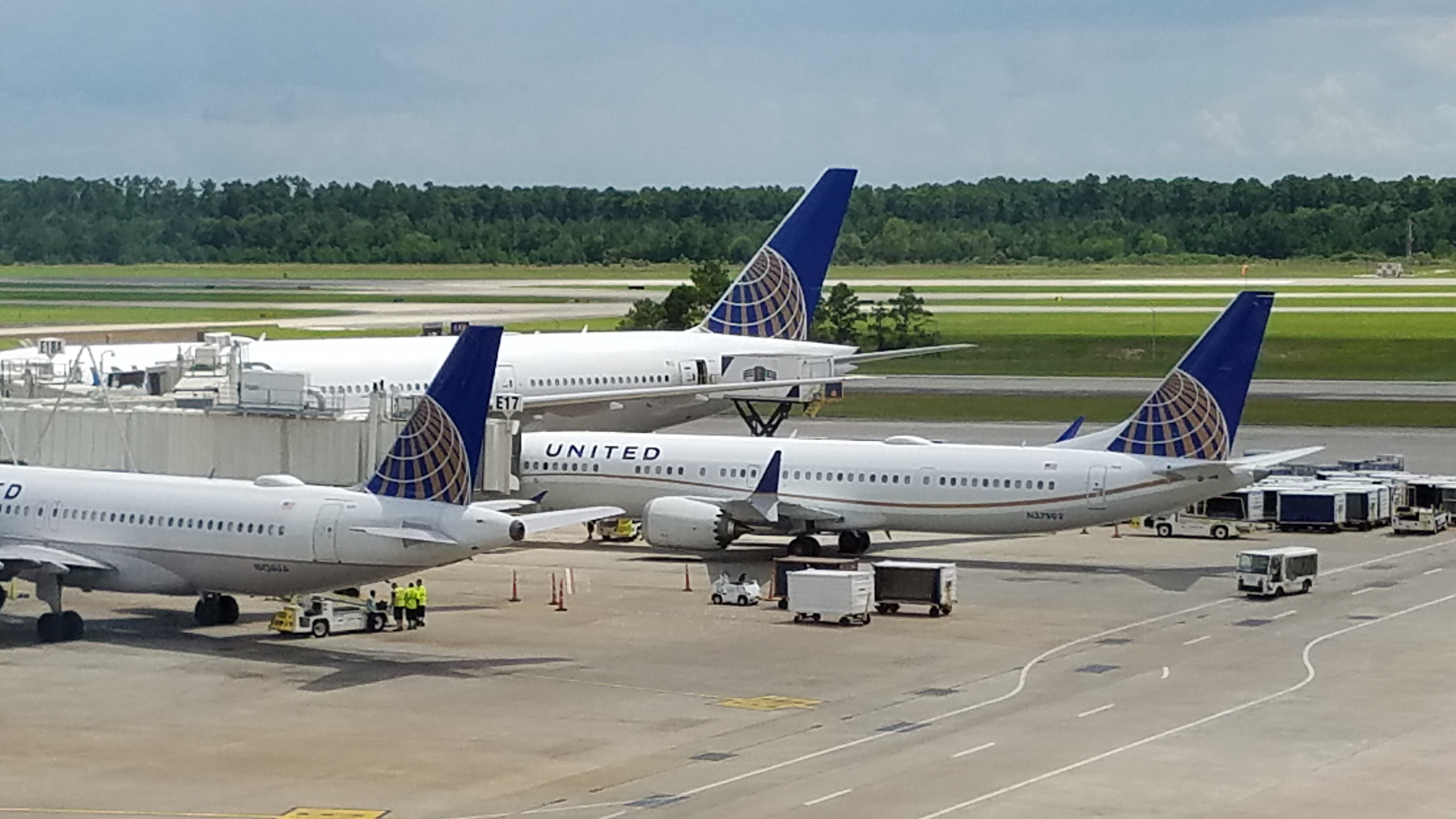
United’s CEO Says Spirit Is Going Out Of Business “Because I’m Good At Math”
CEO Scott Kirby has long maintained that the ultra-low cost carrier business is not sustainable. He said that when they were the most profitable airlines. So now that Spirit is in Chapter 22 and Frontier is underperforming, he’s having a moment.
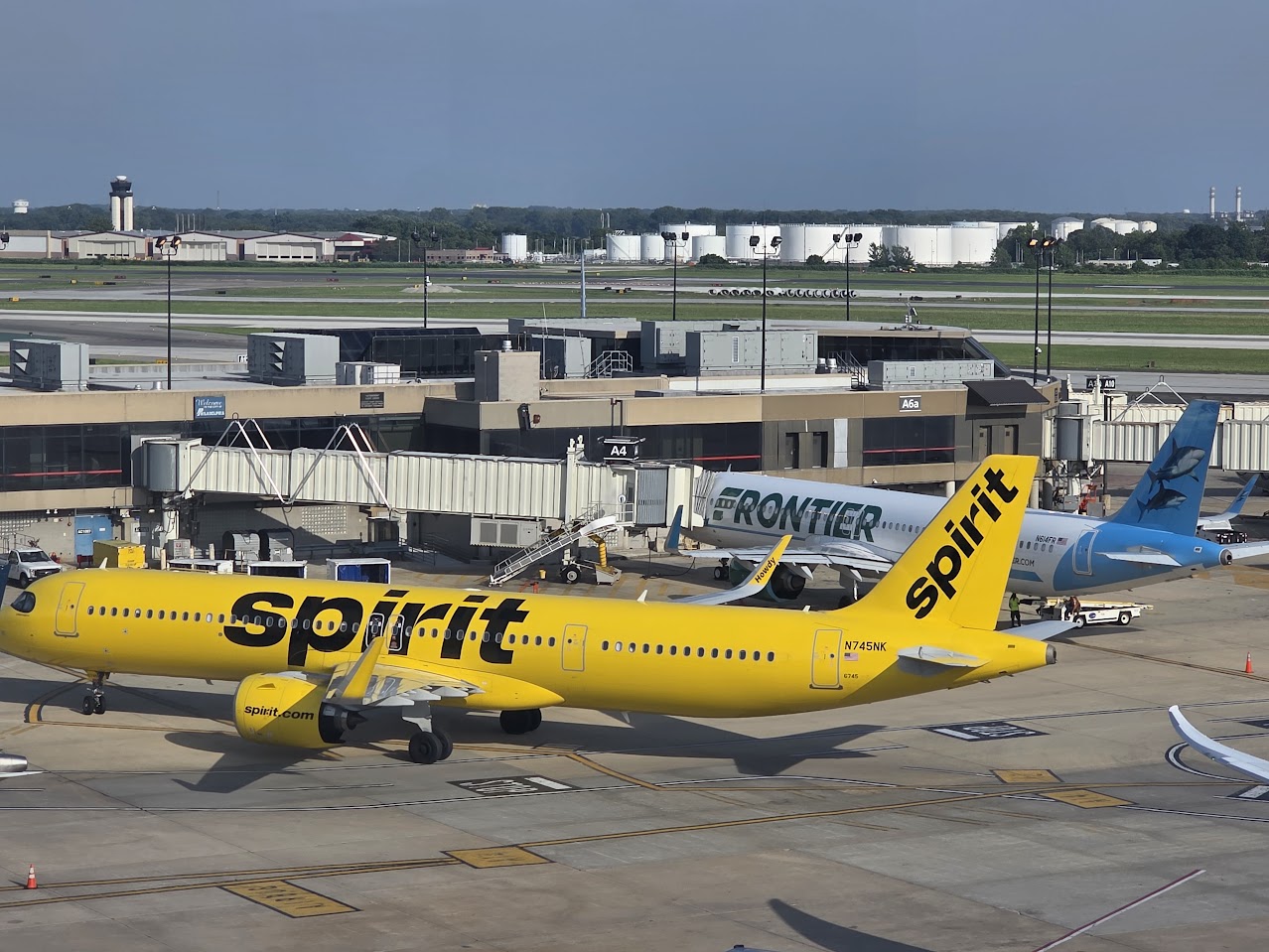
Kirby tells The Airline Observer‘s Brian Sumers (well worth the subscription) that Spirit is toast – going out of business.
I asked him what really will happen next at Spirit, and he was very clear. “Off the cliff they go,” he said. I responded by citing Spirit’s turnaround plan, asking Kirby why he was so sure. “Because I’m good at math,” he said.
As for United’s announced routes into Spirit markets? “We’re not trying to bully them or do anything mean,” he said. “We don’t think they’re going to be flying by then, so we waited until after they would not be flying anymore to add the seats.” Put another way, based on new route timing, Kirby expects Spirit to be out of business by end of the year.
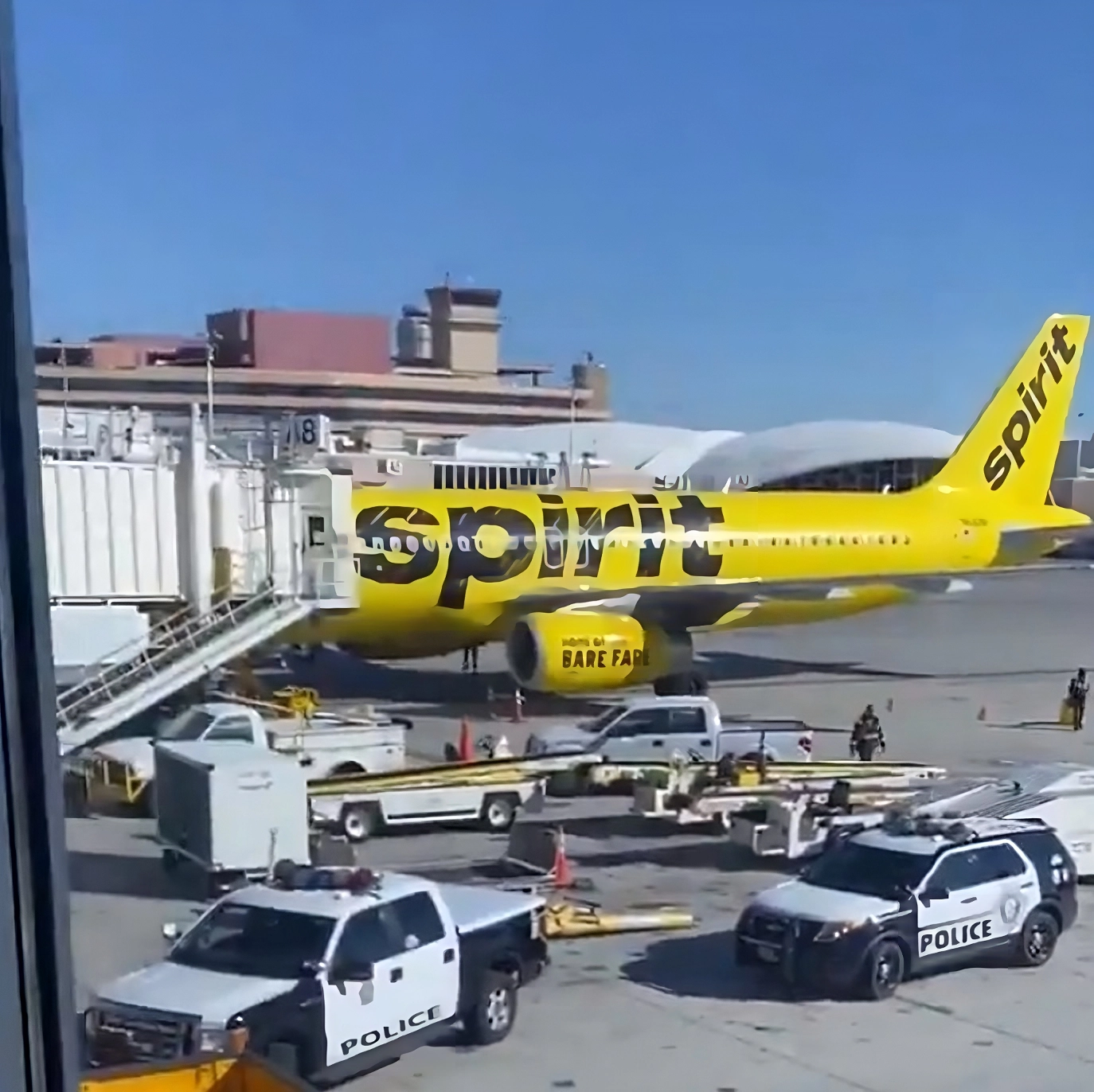
United Says They Won’t Pick Spirit’s Bones
Spirit still has assets: an order book of new Airbus narrowbody aircraft, gates and slots at congested airports, and a Fort Lauderdale operation. If Spirit goes out of business, Kirby predicts,
“I think Florida is going to be a bit of a bloodbath,” he said. “There’s going to be at least three airlines trying to establish a No. 1 position in Fort Lauderdale.”
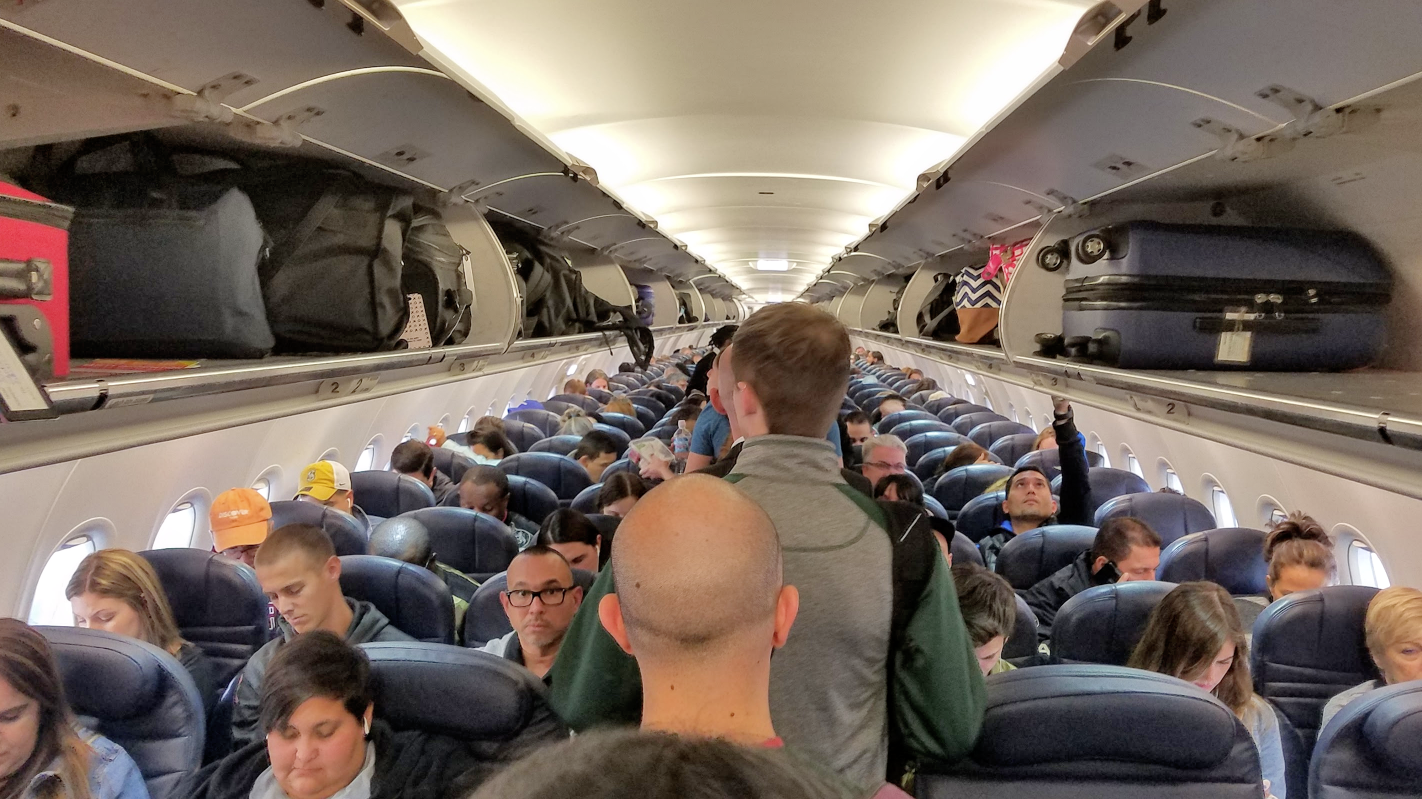
He confirms what I wrote last year, that United wanted a Florida hub, but says that United wouldn’t be a buyer of assets. I’m skeptical – I wouldn’t be surprised to see him go after Spirit gates in Fort Lauderdale.
“We don’t engage in battles where we have the losing hand.” During the pandemic, he asked a team to evaluate new possible hubs where United might expand once he accepts the hundreds of airplanes it has on order and fills out the schedule at its existing hubs. He said the team looked at Fort Lauderdale. (He declined to name the other options some of which, presumably, remain possible.)
“The problem with Fort Lauderdale is: not enough gates and not enough runways,” he said. “You need at least, probably, 35 or 40 gates to make a South Florida hub work. There’s not enough there. We looked at that [and said], ‘oh, that would be cool.’ But then you go look [again] and say, ‘well, it wouldn’t work.’“
Kirby told me he expects United will remain on the sidelines and not bid on Spirit’s assets.
Saying he couldn’t build a Fort Lauderdale hub without Spirit assets is not the same thing as saying he wouldn’t buy their assets – I read him as actually saying he wouldn’t go full throttle into Fort Lauderdale without those.

Here’s Why Low Cost Carriers Are Struggling
The low cost carriers have faced several headwinds:
- They’ve become less low cost. They pay the same for fuel as everyone else. Labor has gotten more expensive.
- Consumer preferences have skewed more premium. They haven’t had the products people have wanted to buy. Even where they’ve been able to sell their seats, it’s been at a discount, while other airlines have earned a premium.
- People have wanted to travel abroad. Where low cost carriers do international, it’s to Mexico, Caribbean, and close-in Latin America.
- They also don’t earn loyalty revenue to the same degree. And it’s loyalty revenue that supports United’s margins and American’s and Delta’s also (even though American is barely profitable).
In 2017 Kirby spelled out his thesis that the airline schedules drive credit card profitability, and this is why he was re-banking hubs and improving domestic connectivity to gain more relevance in each local market. Kirby explained how he thinks re-banking hubs helps sell credit cards. If schedules don’t work for a passenger, the credit card is off the table. So United has spent the past 8 years optimizing for this.
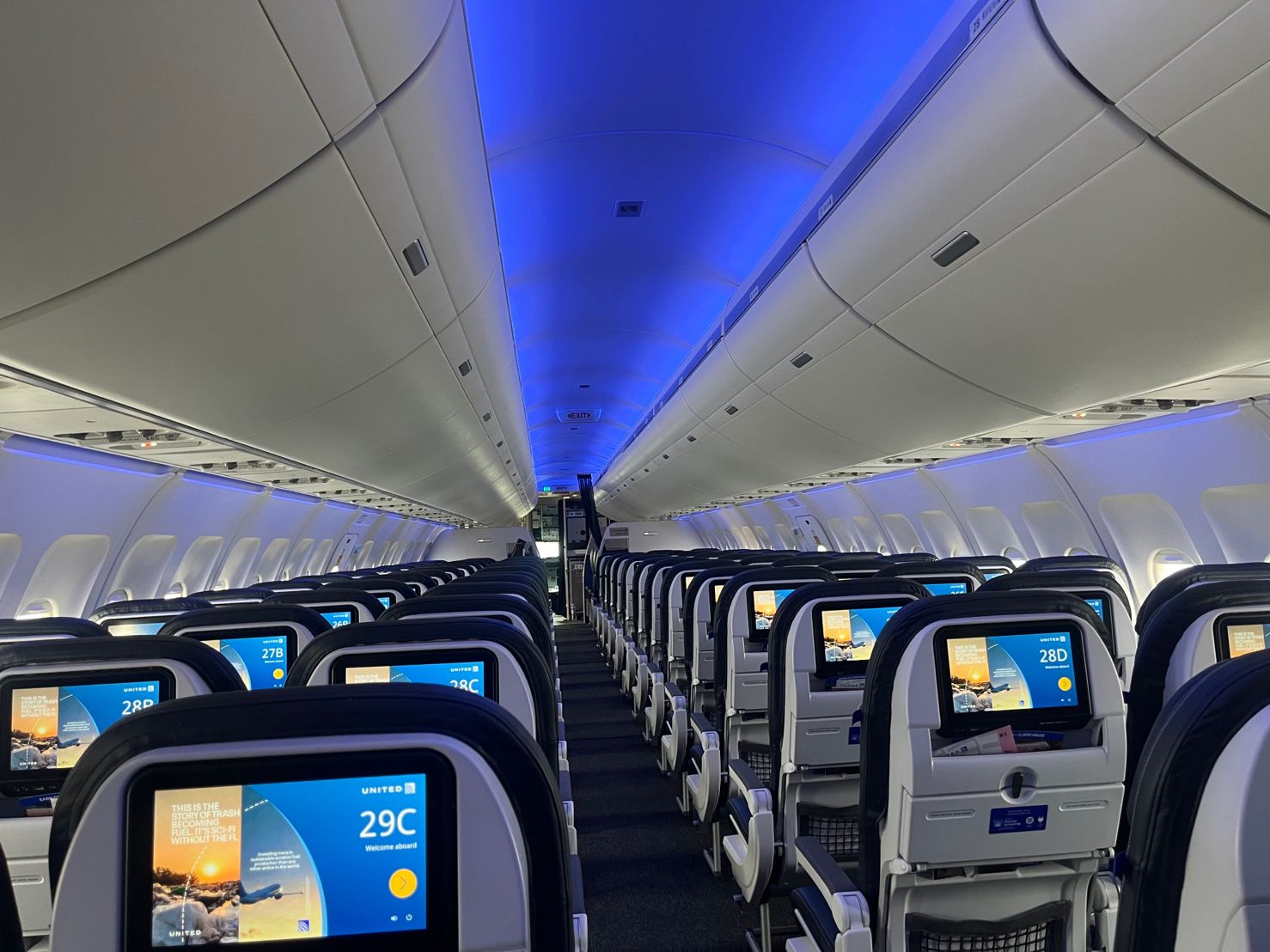
In addiiton to these factors, Kirby has offered that government airports and government-run air traffic control are too inefficient and create problems for the low cost model. They prevent efficient operations, drive up costs, and erode the cost advantage.
Airport costs in major cities are high. But that’s not the only high cost of flying in the Northeast. Congested airports mean greater taxi time, and congested airspace also means that flights take longer. You cannot operate as many flights with an aircraft in the Northeast as you can a similar-distance route elsewhere in the country, and you can’t turn planes around on the ground as fast either.
How Major Airlines Fought Back Against Their More Profitable Small Rivals
Kirby has been arguing that low cost airlines can’t compete successfully since before the pandemic. At the time they were doing better than his United was. So in fairness, this is a belief he’s held for awhile. And now they aren’t doing as well. Some of that is major carriers getting better at competition. Some of that is a shift in consumer preferences and wage inflation driven by the pandemic (that he couldn’t really have predicted in 2019).
But the biggest claim Kirby makes today is that major airlines figured out how to compete with low cost carriers – their hero is ‘basic economy’. When they used to match price, their high fare customers would just pay the lower prices. Now they offer stripped down experiences at the lower price, segmenting customers so that high fare customers keep paying those high fares while they fill empty seats at those low fares offered by the discounters.
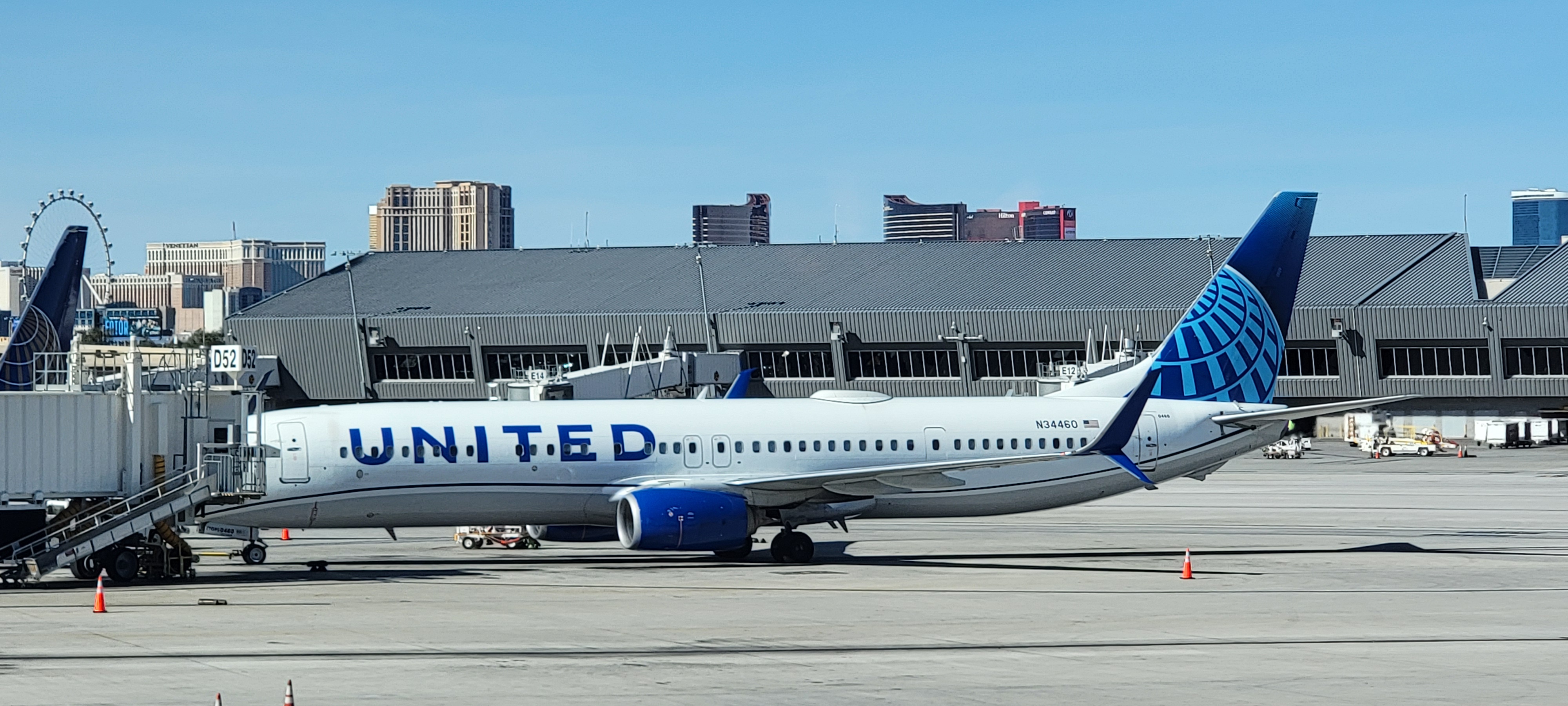
This is not a new idea! In fact, it’s the current manifestation of 14-day advance purchase tickets and Saturday night stays. And that really is an idea that dates back at least 40 years to American Airlines.
Prior to deregulation the Civil Aeronautics Board ‘experimented’ with the idea of price competition. That’s the story of how Southwest Airlines became the largest liquor distributor in Texas through fare segmentation. Faced for the first time with fares lower than their own, they segmented customers: matching $13 fares between Dallas and Houston offered by major competitors, while continuing to sell $26 flights to expense account business travelers who would be able to take home a bottle of booze from the flight.
In 1977, American Airlines introduced the Super Saver fare. Initially on New York – California routes, it was expanded across their domestic route network in 1978 and the airline introduced ‘Ultimate Super Saver’ in 1985, discounting up to 70% to compete against new lower cost carriers that launched after deregulation.
The American Airlines insight was that they could beat low cost carriers at their own game through revenue management. They could be a high fare business airline and a low fare airline by offering different prices to different customers. And they would use the same planes to do both. Using restrictions such as advance purchase requirements, change penalties, and Saturday night stay requirements they made cheap fares available to price sensitive travelers and still retained their margins on business customers who booked the most convenient flights at the last minute.
This gave American a competitive advantage because they had no marginal cost to run their low fare airline. Other carriers quickly copied, of course.
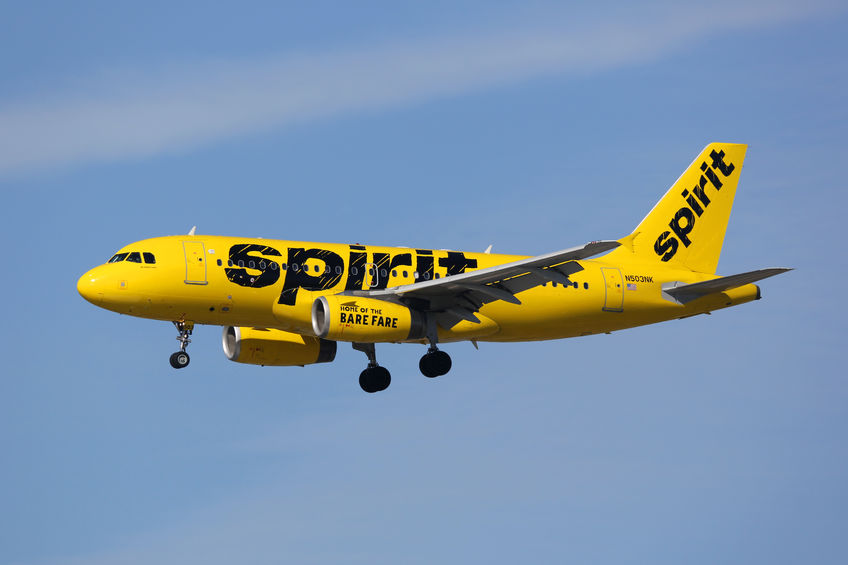
Copyright: boarding1now / 123RF Stock Photo
There Are Problems With Kirby’s Thesis
There are a few problems with Kirby’s model.
- There actually are profitable low cost carriers. Sun Country and Allegiant are doing just fine! Excluding the Sunseeker Resort which is finally coming off their books, Allegiant’s opreating margin last quarter was nearly 9%. Three quarters ago that hit more than 13%.
- The latest version of segmentation – basic economy erodes United’s advantages. United and other airlines were already matching fares of low cost carriers. This did not begin with the introduction of Basic Economy, which hasn’t meant lower fares for customers but rather new restrictions on the existing lowest fares.
Basic economy fares mean giving customers less than before, eroding the product advantage that major airlines had over low cost rivals. It used to make all the sense in the world to choose a legacy airline over Frontier or Spirit at the same price because of the mileage program or advance seat assignments.
Spirit offers better wifi and better operational reliability than United does today, but the airline has a toxic brand. Spirit has less legroom in standard coach, and no seat back TVs. So there’s still some product differentiation even with basic economy. You still get a complimentary soft drink on United flights that are long enough, and maybe a stroopwafel.
- Low cost carriers better merchandise their fees with Frontier now earning 61% of its revenue outside the fare. So Frontier, with still lower costs, can also generate more revenue at the same low fares than United can. This doesn’t work as well at United’s high cost hubs, but it does in most markets.
- Kirby’s argument isn’t recession-tested. Historically low cost carriers have done relatively better in challenging economic conditions. Customers trade down. Kirby thinks he’ll have empty seats and just match Spirit and Frontier fares. He calls them ‘spill carriers’ and says they get to keep whatever traffic he allows to ‘spill’ over to them. But he flies planes and has those empty seats in back because he’s capturing premium revenue. That premium revenue may decline in a recession, United would likely pull back capacity, and have fewer of those seats to sell too.
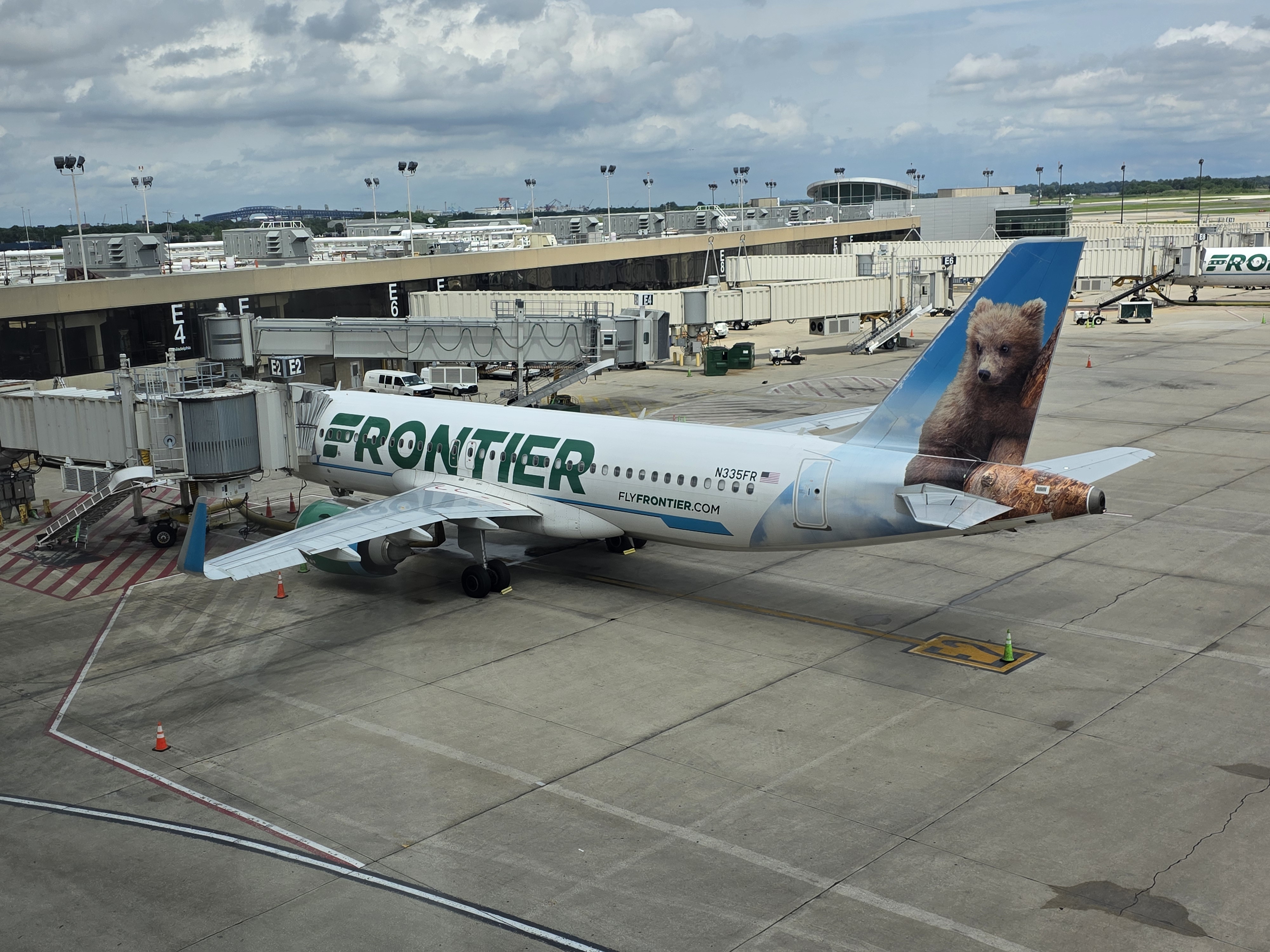
Will Low Cost Airlines Survive?
Ultimately much of the advantage United actually has is loyalty revenue. They have an aspirational product and global route network that tempts customers to spend on their credit card, and Spirit and Frontier cannot match it (although Frontier is adding loyalty benefits and first class seats for this reason).
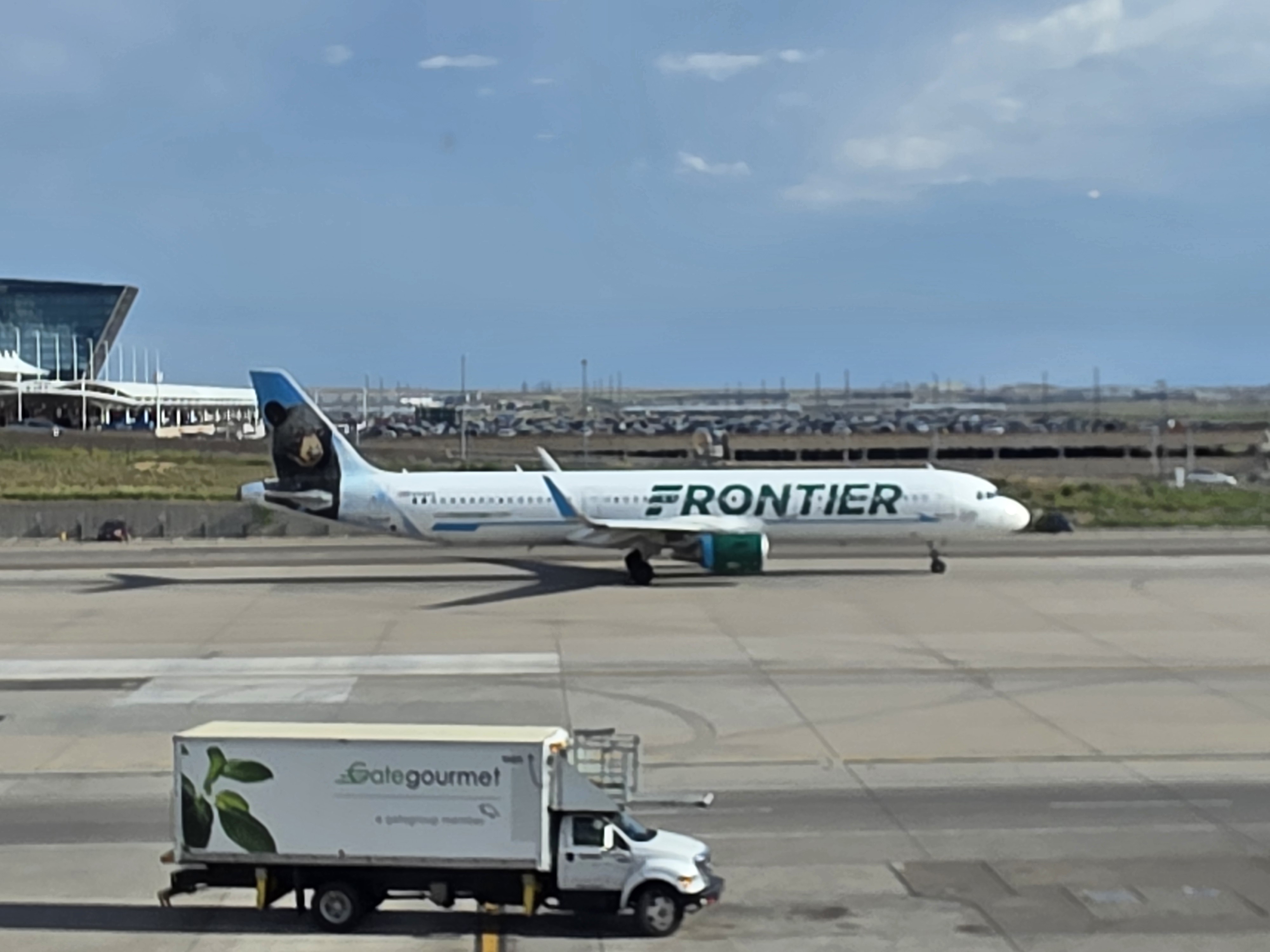
At the same time, low cost carriers outgrow their low cost model. They fly a handful of routes that largely airlines ignored, or they undercut those larger airlines on price with a handful of flights on routes where they compete directly. But there are only so many unexploited opportunities and eventually they find they’ve tapped all of those as they grow. And as they age, their workforces unionize.
In order to keep growing, these same low cost carriers need to try to appeal to different customers with different products. They need a more complicated fleet to serve more markets, which means higher maintenance, training, and staffing costs. Each of these changes entails higher costs, eroding the cost advantage.
Low cost carriers need to avoid expensive, congested airports. They need a simple fleet with low maintenance costs. And the newest airlines are best-positioned to have the lowest labor costs. In Europe, they outsource cabin crews to staffing companies. And they need to aggressively merchandise. Maybe the best at this is Europe’s Volotea.


“Low cost” anything does not work in the United States. We do not have the cultural guardrails for it.
“Low cost” anything in the United States means you will be stripped of your dignity, treated with disrespect, and exposed to health and environmental hazards.
The same is not broadly true in Europe and Asia which is why ULCCs in those regions are more viable.
Kirby cannot say any of this because it’s politically inexpedient, but he knows it damn well.
Kirby needs to shut up and fix his own airline. My family just flew from the US to Europe and back on United, and they have plenty of work to do! Terrible business class food, 2 pieces of luggage completely destroyed (1 in each direction), lousy boarding process…the list goes on. To their credit, United replaced the destroyed bags upon arrival at each destination, however, the fact that they have replacement luggage ready and waiting does set off alarm bells.
Ah, yes, the ole ‘my competition is gonna die’ trope. Ok… maybe sometimes they do, or, maybe they restructure again. Chapter 22! 33?!
Wasn’t Scott Kirby that honourable man who sent a groverling, feet-kissing letter of congratulations to Trump on the day of his reëlection? Is this the kind of man you’d pay attention to and give attention to? (Note the closing — he’s on a first-name basis with Trump. In French we call that “tutoyer” and in German “Duden,” which means you’re on intimate terms, or at least you hope to be).
November 6, 2024
President Donald Trump & Vice President-elect JD Vance
Office of the Presidential Transition
1100 S Ocean Blvd. Palm Beach, FL 33480
Dear President Trump and Vice President-elect Vance:
On behalf of United Airlines, I extend my congratulations to you on your historic victory. I wish you and your incoming Administration success in addressing our nation’s vital needs.
Over the course of the campaign, you have expressed optimism towards the next chapter of our American story. We could not agree more. United is a proud American company. As the largest airline in the world, we fly to all corners of the globe and represent the United States everywhere we fly. Our dynamic workforce of over 100,000 is made up of people from all 50 states and all walks of life. We provide lasting careers with industry leading wages and benefits for people and families across the economic spectrum. Our extensive network is not just good for United and our customers – our presence brings new economic growth and career opportunities to communities large and small, all across America.
United’s optimism for the future is reflected in our continued investments in the American economy and infrastructure. Since 2021, we have invested more than $32 billion back into our business, including the largest aircraft order in commercial aviation history. And more is on the way. We are creating the biggest, best and most innovative airline ever, and as such, a powerful engine of economic growth and job creation across the U.S. economy. I look forward to participating in this journey with you and your Administration.
As your focus turns to policies and personnel, I ask you to consider the role the federal government plays in realizing this vision for economic growth. For example, urgent improvements to the nation’s air traffic control infrastructure (including investments in people, facilities and technology) are central to enabling, instead of hindering, economic growth and customer service delivery. We at United stand ready to help you and your team achieve this success.
In closing, I was inspired by the promise of America’s greatness after spending time recently with the cadets at my alma mater, the United States Air Force Academy. For me, these brave young men and women serve as a living example that the United States is the greatest country in history. With that front of mind, I look forward to working with you and your team.
Sincerely,
Scott
I’m no Scott Kirby fan but I get him reaching out to Trump. He probably wants to establish a friendly relationship in case he wants something down the line. I’m sure Trump has gigantic stack of letters like this on his desk from CEO’s at every type of company.
@Derek McGillicuddy — Glad to see the ALL CAPs was off this time. And nice umlauts on “reëlection.” Also, good point about Kirby being a sycophantic coward.
@Coffee Please — So, umm, is that really what we want to see? Like, I get not picking needless fights, but to have business leaders so fearful of upsetting the President that they have to shower him with absurd praise, lest they and their companies be singled out and retaliated against? How far we’ve fallen… (that ain’t a ‘free’ market either.)
Clearly Kirby is badmouthing Spirit in an effort to drive it out of business, which is a blatantly anti-competitive action that will harm the consumer, though it might benefit United. Is it legal to do this? I imagine Kirby gets his lawyers’ permission even to go to the bathroom, but as a non-lawyer this smells of upcoming antitrust problems to me.
I’m getting tired of Kirby’s dumb mouth noises. For a supposedly smart guy he says things that destroy his credibility on a surprisingly frequent basis.
DaveS,
what is rich is that Kirby talks about needing to get back into JFK and the need for a Florida hub. These statements will come back and bite UA’s backside when regulators go to review industry asset transfers.
Gary,
great bunch of articles this weekend. Keep up the good work
Gary,
I don’t see Breeze mentioned very often. Are they still too small to make a difference in the low-cost model, and how are they doing financially?
Thanks
@Derek McGillicuddy
Being pro-Trump is honorable.
Kirby is not a mathematician.
Well, in a recession, the low-end customers are affected more than the premium customers. So, the argument that a recession will have a bigger impact on United than on the LCCs is wrong. It’s impossible to know what the future holds, but Kirby has always been right since the Covid outbreak. Just look at the United stock performance compared to American and Delta.
@Lucky Larry – they have made some claims to recent profitability though i am skeptical
@Walter barry — Did you see what the President said this weekend? “Smart people don’t like me.” And, remember, ‘He (is) right about everything…’ oof.
marco,
UAL stock has done so well over the past year because it was so badly undervalued because of UAL’s poor performance for so many years.
Still, UAL’s market cap is just 85% of DAL’s; DAL has a much stronger balance sheet while UAL has a massive order book which is a risk in a downturn so it would take far higher earnings for UAL to surpass DAL.
While Allegiant was tacitly praised, they are not called out for abysmal pay! A new hire pilot, with experience, is paid less than a new hire at regional airlines! For instance, a new hire at a prominent regional carrier is paid $103.00 an hour with a 75 hour guarantee. Allegiant pays about $57.00 an hour! It is claimed that the Teamsters (note…not ALPA) are working to close the gap. Scheduling is also terrible. A new hire in the Tampa area is required to be on reserve at 0230 AND cover Tampa, Clearwater and Sarasota airports. Only one day off (Tuesday). Pilots can never talk to anyone… communication is done with emails…if they ever get answered. The only thing positive as one doesn’t read about too many fisticuffs among passengers and staff.
He is correct and unless Indigo Partners wants to continue to pump money into Frontier that airline will be gone by the end of 2026. This business model does not “scale” over the long term. It might be viable flying between whatever underutilized city pairs exist on a less than daily basis.
When the “costs” are higher than the “revenue” no business can survive long term. Simple math.
Because Tim is SO anti-UAL makes me think there is a real threat to DLs dominance.
DAL FAs will unionize soon. I look forward to Tim’s analysis on that one.
When Spirit Airlines goes out of business, will the venue of the Florida Spirit Airlines departure gate fights be charged to the United Airlines’ departure gates?
Forbes,
you honestly find it threatening to anyone to point out actual facts such as the market cap relationship?
DL FAs have had more chances to vote in a union election than any other group of American workers.
When you see the disaster that has been AA and UA’s FA negotiations, you would have to be completely ignorant to vote for a union compared to what DL FAs have had post covid.
problem is that so many of you can’t stand the truth -which is precisely why I keep coming back.
given that DL basically laid down the law on UA in LAX with -ORD and – HKG after DL’s lead in NYC widened even further, it is clear that it is UA that is calling the shots.
To United CEO – are you being unnecessarily cruel / crude? What’s your point? Spirit Airlines employees have families who depend on them. The public frequently needs to travel lower cost carriers because they don’t always have excess money to spend on higher priced seats.
@1990
It doesn’t take but 3 seconds to see that Kirby also sent a congratulatory letter to Biden/Harris in 2020, but fools like you can’t see beyond your nose.
This is all political posturing. Every CEO does it to nearly every president.
@Tim Dunn – if we say we believe you will you go away?
If UA is looking for 30-40 gates in Florida they ain’t gonna find it…especially at an airport laid out to function as a hub. FLL is the best they can hope for without building a new airport somewhere.
This is coming from the CEO of the airline I was racially discriminated at in MIA Airport by their gate attendants and after accepting fault they stopped responding. I have a beard and muscle. I was told to find a new airline and flight home which customer care did just that.
I read elsewhere that when Spirit filed Chapter 11 the second time, their largest creditor was the United States for back taxes. If they have been failing to pay FICA and income tax withholding to the IRS they are done for.
Marty,
I will spend less time having to correct misinformation and presumably “you” will have to come up w/ something else to post.
gofor,
correct, if true. bankruptcy laws have all kinds of leeway to take future wages away from employees but there is very little flexibility to not pay employees and the government for already earned wages.
and it is possible that some of NK’s leasing companies knew that which triggered their actions.
the fact that no one is stepping forward to buy NK in whole says the sum of the pieces do not add up to enough
@Tim Dunn:
“Still, UAL’s market cap is just 85% of DAL’s”-Kind of irrelevant as they are quite close to each other.
” UAL has a massive order book which is a risk in a downturn so it would take far higher earnings for UAL to surpass DAL.” – So does DL. Also, I’m sure UAL have multiple clauses for their order book.